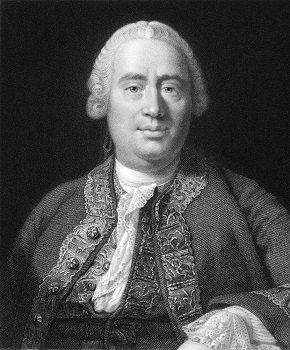Liberty Matters
Hume Really Did Make Mere-Liberty Central

No one can doubt, that the convention for the distinction of property, and for the stability of possession, is of all circumstances the most necessary to the establishment of human society, and that after the agreement for the fixing and observing of this rule, there remains little or nothing to be done towards settling a perfect harmony and concord. -- David Hume, A Treatise of Human Nature (491; boldface added)
Andrew's contribution "Hume Really Didn't Say Everything He 'Said'" treats two passages from Hume's History. The first is as follows:
Hume wrote, in the course of mocking some particularly foolish wage, price, and export regulations under Henry VII, "that these matters ought always to be left free" and be entrusted to the common course of business and commerce."
Andrew diminishes the Hume passage by referring to it as an "offhand line." But it is not offhand. On the previous page, Hume reports approvingly that "the nobility and gentry acquired a power of breaking the ancient entails," and disapprovingly ("how unreasonable and iniquitousSevere laws were made") that " against taking interest for money"; "Even the profits of exchange were prohibited"; "Laws were made against the exportation of money, plate, or bullion" (H 3:77); "It was prohibited to export horsesno bows"; " were to be sold at a higher price than six shillings and four-pence"; "Prices were affixedthe wages of labourers were regulated by law to woollen cloth, to caps and hats"; and "" (78). It is at that point that Hume says: "these matters ought always to be left free, and be entrusted to the common course of business and commerce." And our seeming free-marketeer is not finished: "One great cause of the low state of industry These absurd limitationsduring this period, was the restraints put upon it"; " proceeded from a desire of promoting husbandry"; "All methods of supporting populousness, except by the interest of the proprietors, are violent and ineffectual"; "and One check to industry in England was the erecting of corporations; an abuse which is not yet entirely corrected" (79). The line that Andrew refers to as "offhand" is in the midst of a several-page cataloging of policy developments, and Hume's drift is clearly and consistently against the governmentalization of social affairs.
Such drift is hardly unique to that patch in the History. To introduce another: about 55 pages later, Hume once again issues a general (by-and-large) endorsement of economic liberty:
[T]he constant rule of the magistrate, except, perhaps, on the first introduction of any art, is, to leave the profession to itself, and trust its encouragement to those who reap the benefit of it. The artizans, finding their profits to rise by the favour of their customers, encrease, as much as possible, their skill and industry; and as matters are not disturbed by any injudicious tampering, the commodity is always sure to be at all times nearly proportioned to the demand. [H 3: 135; boldface added.]
Yes, Hume made exceptions, and in fact here the next thing Hume says is that in the 16th century, there was good reason for the "wise legislatorthe interested diligence of the clergy" to prevent "," by bribing "their indulgence," through a "fixed establishment for the priests" (136). Still, Hume's favor for liberty—including free markets—is less obscure than Andrew suggests. The drift of Hume's essays about commerce and the jealousy of trade are clearly and consistently opposed to the governmentalization of social affairs. As Russell Hardin (2007) put it: "he thinks that government should be kept small and not intrusive, as he argues in his varied essays on economics" (200).
The second quotation that Andrew treats is one that he himself introduces. The quotation begins: "Advantage was also takenthat singular and happy government" (H 5:114). If the reader reviews the matter, she might scratch her head. The "full prosecution" (I'm quoting Hume, not Andrew) of the "noble principle" that "the authority alone of laws [as opposed, that is, to merely royal prerogative], could restrain that unlimited freedom" does not imply that the government that fully prosecutes such principle will necessarily liberalize as thoroughly as Hume thinks desirable. Meanwhile, it remains perfectly sensible that Hume would applaud the full prosecution of the principle, and believe such full prosecution essential to producing ", which we enjoy at present."
Something else about the quotation that Andrew introduces: in Hume's note to the passage (Note N, 560), Hume speaks of the law recalling patents of monopolies as "establishing principles very favourable to liberty." Hume is using liberty in the mere-liberty sense.
Here I've remarked on two passages that Andrew treated. But there are oodles of passages in the History where Hume communicates a mere-liberty notion, and, in many, with warm positive valence in his own voice.
References
Hardin, Russell. 2007. David Hume: Moral and Political Theorist. New York: Oxford University Press.
Copyright and Fair Use Statement
“Liberty Matters” is the copyright of Liberty Fund, Inc. This material is put on line to further the educational goals of Liberty Fund, Inc. These essays and responses may be quoted and otherwise used under “fair use” provisions for educational and academic purposes. To reprint these essays in course booklets requires the prior permission of Liberty Fund, Inc. Please contact oll@libertyfund.org if you have any questions.